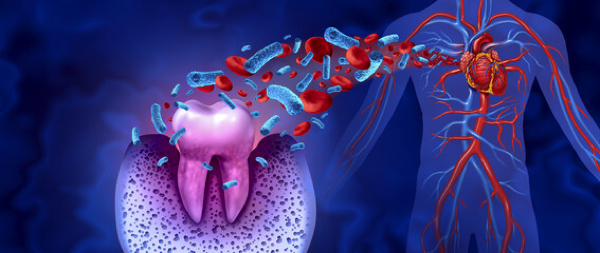Ultra-processed foods rewire the brain, fueling overeating and metabolic chaos
10/22/2025 / By Willow Tohi

- High UPF consumption alters brain structures linked to hunger, reward and decision-making.
- UPFs trigger systemic inflammation and metabolic dysfunction, independent of weight gain.
- Processed foods hijack dopamine pathways, reinforcing cravings and overeating.
- MRI scans reveal cellular damage in brain regions controlling appetite.
- Stricter food regulations and public awareness are needed to curb UPF-driven health crises.
A groundbreaking study analyzing brain scans of nearly 30,000 people has uncovered alarming links between ultra-processed food (UPF) consumption and measurable structural changes in the brain. Published in NPJ Metabolic Health and Disease, the research—conducted by an international team from the University of Helsinki and McGill University—reveals that UPFs may rewire neural circuits involved in hunger, reward processing and impulse control. These changes could trap individuals in a vicious cycle of overeating, metabolic dysfunction and inflammation, regardless of obesity status.
Using MRI data from the UK Biobank, researchers identified disturbing alterations in key brain regions—including the hypothalamus, nucleus accumbens and amygdala—among high UPF consumers. Even small dietary shifts (just 10% more UPFs daily) correlated with measurable brain changes, equivalent to eating two extra chicken nuggets per day.
How ultra-processed foods hijack the brain
Not all processed foods are harmful—pasteurized milk and frozen vegetables retain nutritional value. However, UPFs—loaded with industrial emulsifiers, artificial sweeteners and chemically modified ingredients—exploit the brain’s reward system much like addictive drugs.
Key findings:
- UPFs inflame the gut-brain axis, disrupting dopamine signaling and amplifying cravings.
- The nucleus accumbens (a reward center) showed reduced cellularity—a hallmark of neurodegeneration.
- The hypothalamus (regulating hunger) exhibited signs of gliosis, suggesting chronic inflammation.
- Elevated C-reactive protein (CRP) levels confirmed systemic inflammation, independent of obesity.
These changes suggest UPFs don’t just make us eat more—they rewire our brains to crave them.
Beyond obesity: The metabolic fallout of UPFs
Critically, the study found that UPFs harm health through multiple pathways, not just weight gain:
- Blood sugar dysregulation: Higher HbA1c (long-term glucose marker), indicating insulin resistance and increased diabetes risk.
- Lipid chaos: Lower HDL (“good” cholesterol) and elevated triglycerides—both key predictors of cardiovascular disease.
- Hypertension: Reduced blood pressure control, likely due to excessive sodium, inflammatory additives and endothelial dysfunction.
- Systemic inflammation: Elevated C-reactive protein (CRP), confirming chronic low-grade inflammation linked to neurodegeneration and autoimmune disorders.
Even lean participants suffered metabolic damage, debunking the myth that UPFs only harm those who are overweight. These findings suggest that UPFs chemically hijack the body’s regulatory systems—disrupting hormones, gut microbiota and neural signaling—independent of caloric intake. Alarmingly, these effects mirror those seen in metabolic syndrome, proving that UPFs are not just “empty calories” but biologically destructive substances.
Ultra-processing itself—not just sugar or fat content—appears to be the primary driver of metabolic dysfunction, reinforcing the need for stricter food industry regulations and public awareness campaigns.
Corporate food engineering: Designed for addiction
Food manufacturers engineer UPFs to maximize palatability and addictiveness, leveraging:
- Hyper-palatable combinations of fat, sugar and salt.
- Emulsifiers and additives that disrupt gut microbiota, fueling inflammation.
- Dopamine surges stronger than natural foods, reinforcing compulsive eating.
This manipulation creates a self-perpetuating cycle: the more UPFs consumed, the more the brain craves them.
Policy and personal action: Breaking the cycle
Given the mounting evidence, researchers urge:
- Stricter food regulations banning harmful additives.
- Public health campaigns educating on UPF dangers.
- Dietary shifts toward whole, minimally processed foods.
Individuals can mitigate harm by:
- Reducing UPF intake incrementally.
- Prioritizing anti-inflammatory foods (fiber, omega-3s, antioxidants).
- Supporting local, organic farming to bypass industrial food systems.
A wake-up call on ultra-processed foods
This study adds to a growing body of research exposing UPFs as neurological disruptors, not just empty calories. The findings suggest that food corporations—much like Big Tobacco—have engineered products that alter brain function, driving overconsumption and chronic disease.
As UPF consumption surges globally—now comprising over 50% of calories in some nations—urgent action is needed to dismantle this public health time bomb. Whether through policy reform or personal dietary shifts, the message is clear: ultra-processed foods don’t just feed us—they reprogram us.
Sources for this article include:
Submit a correction >>
Tagged Under:
brain health, Censored Science, clean food watch, ingredients, mental, mind body science, research, scientific, stop eating poison, toxins
This article may contain statements that reflect the opinion of the author





















